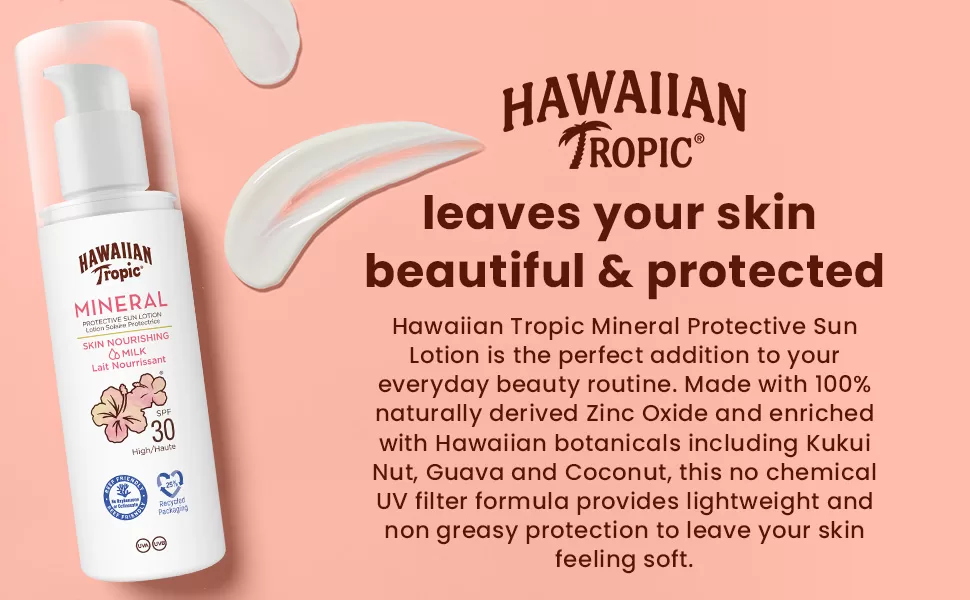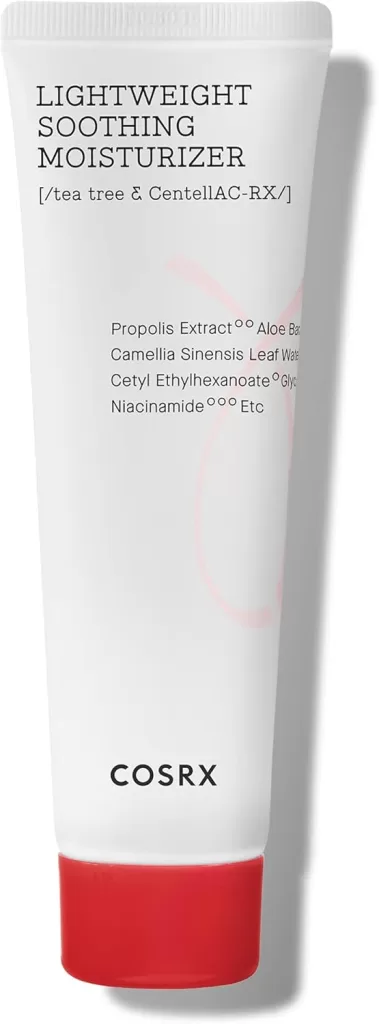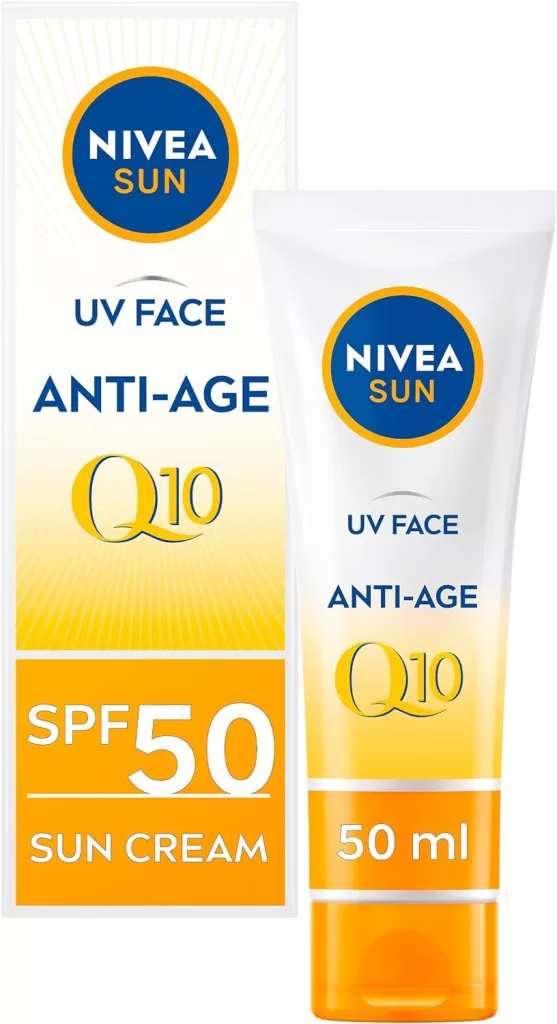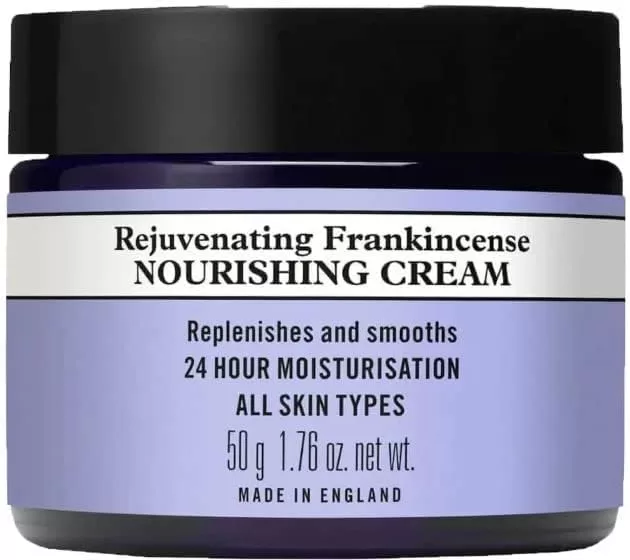Skincare After Wudu: What You Need to Know
Performing wudu (ablution) is an essential part of Islamic practice, cleansing both the body and the soul before prayer. But for those passionate about skincare, a common question arises: Can you do skincare after wudu? This article explores best practices for maintaining a balanced skincare routine while honoring this spiritual act.
What Happens to Your Skin During Wudu?
Wudu involves washing the face, arms, and feet, often multiple times a day. While spiritually rejuvenating, frequent washing can sometimes strip the skin of natural oils, leading to dryness or irritation. Understanding your skin’s needs post-wudu is the first step to a healthy and effective skincare routine.
Can You Apply Skincare Products After Wudu?
Yes, you can apply skincare products after performing wudu. In fact, post-wudu is an ideal time to lock in hydration and protect the skin barrier. Here’s why:
- Clean Skin Surface: Wudu removes impurities, leaving your skin primed for absorbing skincare products.
- Hydration Boost: Water left on the skin from wudu can enhance the absorption of hydrating products like moisturizers.

Top Moisturizers for Dry and Sensitive Skin
When it comes to caring for sensitive skin, a well-structured skincare protocol is essential. Sensitive skin requires gentle yet effective products that hydrate, soothe, and protect the skin barrier without causing irritation. In this guide, we’ll walk you through a detailed step-by-step routine, including product recommendations, key ingredients, and additional tips to help you achieve a calm, healthy complexion.
Morning Skincare Routine for Sensitive Skin
- Cleanse Gently
Start your day with a mild, non-stripping cleanser that removes impurities without disrupting your skin’s natural moisture barrier. Look for formulas with soothing ingredients like chamomile or aloe vera.
Recommended Product: Roman Chamomile Tonic- Key Ingredients: Roman Chamomile (calms irritation), Aloe Vera (hydrates and soothes).
- Apply a Soothing Serum
Serums packed with nourishing ingredients can help strengthen your skin barrier and reduce redness. Opt for lightweight, non-comedogenic formulas.
Recommended Product: Plant Milk Serum- Key Ingredients: Buriti Fruit Oil (rich in antioxidants), Rose (hydrates and reduces inflammation).
- Moisturize for Protection
A hydrating moisturizer is crucial for locking in moisture and shielding your skin from environmental stressors. Choose a fragrance-free, hypoallergenic formula.
Recommended Product: Ultra-Calming Moisturizer- Key Ingredients: Lavender (soothes irritation), Fo-Ti (promotes collagen renewal).
- Don’t Forget Sunscreen
Sensitive skin is more prone to sun damage, so always finish your morning routine with a broad-spectrum SPF. Look for mineral-based sunscreens with zinc oxide or titanium dioxide.
Recommended Product: Mineral SPF 30- Key Ingredients: Zinc Oxide (gentle sun protection), Green Tea Extract (antioxidant boost).

Evening Skincare Routine for Sensitive Skin
- Double Cleanse (if needed)
If you wear makeup or sunscreen, start with an oil-based cleanser to gently dissolve impurities, followed by a water-based cleanser to refresh your skin.
Recommended Product: Gentle Cleansing Oil- Key Ingredients: Jojoba Oil (balances skin), Cucumber Extract (cools and hydrates).
- Exfoliate Gently (1-2 times a week)
Sensitive skin benefits from occasional exfoliation to remove dead skin cells without causing irritation. Use a mild exfoliant with enzymatic or lactic acid-based ingredients.
Recommended Product: Epi-Peel- Key Ingredients: Papaya Enzymes (gentle exfoliation), Honey (soothes and hydrates).
- Apply a Repairing Serum or Treatment
Nighttime is ideal for using targeted treatments that repair and rejuvenate your skin. Look for serums with calming and barrier-strengthening properties.
Recommended Product: Overnight Repair Serum- Key Ingredients: Ceramides (restore skin barrier), Niacinamide (reduces redness and improves texture).
- Lock in Moisture with a Rich Cream
Finish your evening routine with a nourishing night cream that deeply hydrates and supports your skin’s natural repair process.
Recommended Product: Intensive Recovery Cream- Key Ingredients: Shea Butter (deeply moisturizes), Oat Extract (calms irritation).
Additional Tips for Sensitive Skin Care
- Patch Test New Products: Always test new products on a small area of skin before full application.
- Avoid Harsh Ingredients: Steer clear of alcohol, synthetic fragrances, and sulfates, which can trigger irritation.
- Stay Consistent: Sensitive skin thrives on consistency, so stick to your routine and avoid frequent product changes.
- Hydrate from Within: Drink plenty of water and maintain a balanced diet to support your skin’s health.
Expected Outcomes
By following this skincare protocol, you can expect:
Calmer, healthier-looking skin over time
Reduced redness and irritation
A stronger, more resilient skin barrier
Improved hydration and a smoother complexion
What Skincare Products Are Best After Wudu?
Hydrating Mist or Toner
Toning is an essential step in any skincare routine, especially for sensitive skin, as it helps restore balance, soothe irritation, and prepare the skin for subsequent products. Here’s a detailed guide to toning sensitive skin, including application instructions, product selection, and skin type considerations:
Step-by-Step Application Method
- Cleanse First: Always start with a gentle cleanser to remove impurities without stripping the skin’s natural moisture barrier.
- Apply the Toner:
- Use a soft cotton pad or your clean hands to apply the toner.
- Gently sweep it over your face and neck, avoiding harsh rubbing or tugging.
- For extra soothing benefits, you can also press the toner into your skin with your palms.
- Frequency: Use the toner twice daily—morning and evening—or as needed to refresh and rehydrate your skin throughout the day.
Skin Type Considerations
- Choose Alcohol-Free Formulas: Sensitive skin is prone to irritation, so avoid toners with alcohol, synthetic fragrances, or harsh chemicals.
- Look for Soothing Ingredients: Opt for toners with calming ingredients like chamomile, aloe vera, rose water, or hyaluronic acid to hydrate and reduce redness.
- pH-Balanced Products: Sensitive skin benefits from toners that maintain the skin’s natural pH (around 5.5) to prevent irritation and strengthen the skin barrier.
Purpose and Benefits of Toning for Sensitive Skin
- Restores Hydration: Replenishes moisture lost during cleansing or environmental exposure.
- Soothes and Calms: Reduces redness and irritation, making it ideal for reactive skin.
- Prepares the Skin: Enhances the absorption of serums and moisturizers, ensuring your skincare routine is more effective.
By following this routine and selecting the right products, you can effectively tone sensitive skin while keeping it calm, balanced, and hydrated.
Moisturizer
Moisturizer: Locking in Hydration After Wudu
Moisturizing is a vital step in any skincare routine, particularly after wudu, as the water and cleansing process can temporarily strip the skin of its natural oils. For sensitive skin, using the right moisturizer helps restore hydration, soothe irritation, and strengthen the skin barrier. Here’s how to effectively incorporate moisturizer into your post-wudu routine:
Why Moisturizer is Essential After Wudu
- Restores Hydration: Wudu can leave the skin feeling dry or tight. A moisturizer replenishes lost moisture and keeps the skin soft and supple.
- Strengthens the Skin Barrier: Moisturizers help reinforce the skin’s natural protective layer, which is especially important for sensitive skin prone to irritation.
- Soothes and Calms: Ingredients like ceramides, aloe vera, or oat extract can reduce redness and discomfort, making moisturizer ideal for sensitive skin.
How to Apply Moisturizer After Wudu
- Pat Dry Gently: After wudu, gently pat your face dry with a clean towel, leaving a slight dampness on the skin to help lock in moisture.
- Apply to Damp Skin: Take a pea-sized amount of moisturizer and warm it between your fingertips. Gently press and massage it into your face and neck using upward motions.
- Focus on Dry Areas: Pay extra attention to areas that tend to get dry, such as the cheeks, forehead, and around the nose.
- Layer with Other Products: If you’re using a toner or serum, apply those first, then follow up with moisturizer to seal in the benefits.
Choosing the Right Moisturizer for Sensitive Skin
- Fragrance-Free and Hypoallergenic: Avoid products with added fragrances or harsh chemicals that can irritate sensitive skin.
- Rich in Soothing Ingredients: Look for moisturizers with calming ingredients like ceramides, aloe vera, chamomile, or oat extract to reduce redness and irritation.
- Lightweight yet Hydrating: Opt for a non-greasy formula that absorbs quickly but provides long-lasting hydration. Gel-based or water-cream moisturizers are great options for sensitive skin.
- Barrier-Repairing: Choose products that contain ingredients like niacinamide or hyaluronic acid to help repair and maintain the skin’s natural barrier.
When to Moisturize
- Morning and Evening: Apply moisturizer twice daily—once after your morning wudu and again after your evening wudu or before bed.
- As Needed: If your skin feels dry or tight throughout the day, reapply a light layer of moisturizer to keep it hydrated.
By adding moisturizer to your post-wudu routine, you can ensure your skin stays hydrated, calm, and protected throughout the day. This step is especially important for sensitive skin, as it helps maintain balance and prevents irritation.

COSRX AC Collection Lightweight Soothing Moisturizer, 80ml | Aloe Vera Leaves Extract 71.2% | Cruelty Free, Paraben Free, Korean Skincare
Sunscreen
How to Apply Sunscreen After Wudu
- Wait a Few Minutes: After completing wudu, gently pat your face dry with a clean towel and allow your skin to absorb any hydrating products (like toner or moisturizer) for 2-3 minutes.
- Apply Generously: Use a broad-spectrum sunscreen with at least SPF 30. Take a dime-sized amount and dot it evenly across your face and neck.
- Blend Gently: Use your fingertips to spread the sunscreen in upward, circular motions, ensuring full coverage. Don’t forget often-missed areas like the ears, hairline, and jawline.
- Reapply as Needed: If you’re outdoors or exposed to sunlight for extended periods, reapply sunscreen every 2-3 hours to maintain protection.
Choosing the Right Sunscreen for Sensitive Skin
- Opt for Mineral-Based Formulas: Look for sunscreens with zinc oxide or titanium dioxide, as these are less likely to irritate sensitive skin.
- Fragrance-Free and Non-Comedogenic: Avoid sunscreens with added fragrances or pore-clogging ingredients to prevent breakouts or irritation.
- Lightweight and Hydrating: Choose a sunscreen that feels lightweight on the skin and contains hydrating ingredients like glycerin or hyaluronic acid to counteract dryness.
By incorporating sunscreen into your post-wudu routine, you not only protect your skin from sun damage but also maintain its health and radiance throughout the day.

NIVEA Sun UV Face Anti-Age SPF 50 Cream (50ml), Q10 Sun Cream Protects Against UVA/UVB Rays and Premature Skin Ageing, Anti-Ageing Cream, Fights Fine Lines..
Facial Oils (Optional)
Facial Oils (Optional): Enhancing Hydration and Nourishment After Wudu
These Facial oils can be a luxurious and beneficial addition to your skincare routine, especially after wudu. While optional, they are particularly helpful for those with dry or sensitive skin, as they provide deep nourishment, lock in moisture, and create a protective barrier. Here’s how to incorporate facial oils into your post-wudu routine effectively:
Why Use Facial Oils After Wudu?
- Deep Hydration: Facial oils penetrate deeply into the skin, providing long-lasting hydration and preventing moisture loss.
- Strengthen the Skin Barrier: Oils rich in essential fatty acids, like rosehip or jojoba oil, help repair and reinforce the skin’s natural barrier, which is especially beneficial after water exposure during wudu.
- Soothe and Calm: Many facial oils have anti-inflammatory properties that can reduce redness and irritation, making them ideal for sensitive skin.
- Lock in Moisture: When applied as the last step in your routine, facial oils seal in the benefits of your toner, serum, and moisturizer.
How to Apply Facial Oils After Wudu
- Layer Correctly: Apply facial oil as the final step in your skincare routine, after moisturizer. This helps lock in all the hydration and active ingredients from previous products.
- Use Sparingly: A little goes a long way! Take 2-3 drops of oil, warm it between your palms, and gently press it onto your face and neck. Avoid rubbing, as this can irritate sensitive skin.
- Target Dry Areas: Focus on areas that tend to get dry, such as the cheeks, forehead, and around the eyes.
- Morning or Night: Use facial oils in the evening for deep nourishment or during the day if your skin feels particularly dry. If using during the day, allow the oil to absorb fully before applying sunscreen.
Choosing the Right Facial Oil for Sensitive Skin
- Non-Comedogenic Oils: Opt for lightweight oils that won’t clog pores, such as jojoba oil, squalane, or rosehip oil.
- Soothing Ingredients: Look for oils with calming properties, like chamomile, calendula, or argan oil, to reduce redness and irritation.
- Rich in Antioxidants: Oils like sea buckthorn or pomegranate seed oil are packed with antioxidants, which protect the skin from environmental damage.
- Fragrance-Free: Avoid oils with added fragrances or essential oils, as these can irritate sensitive skin.
Benefits of Facial Oils for Sensitive Skin
- Restores Elasticity: Oils help improve skin elasticity, making it look plump and youthful.
- Reduces Irritation: Anti-inflammatory oils can soothe sensitive skin and reduce redness.
- Adds a Healthy Glow: Facial oils give the skin a natural, radiant finish without feeling heavy or greasy.
When to Use Facial Oils
- Evening Routine: Apply facial oil at night to allow it to work deeply while you sleep.
- Dry or Cold Weather: Use oils more frequently during harsh weather conditions to combat dryness and protect the skin.
- As Needed: If your skin feels tight or dehydrated after wudu, a few drops of facial oil can provide instant relief.
By incorporating facial oils into your post-wudu routine, you can elevate your skincare regimen with an extra layer of nourishment and protection. While optional, they are a fantastic way to pamper your skin and address specific concerns like dryness or sensitivity.

Garnier Organic Soothing Lavandin Glow Facial Oil Healthy Smooth And Glowing Skin, 30ml
Best Ingredients for Soothing Sensitive Skin
When it comes to soothing sensitive skin, certain herbal ingredients stand out for their calming properties. Let’s explore a few renowned options that can help nurture and protect delicate skin.
Roman Chamomile
Roman Chamomile is celebrated for its skin-soothing properties. It contains flavonoids and terpenoids, which help constrict blood vessels and reduce swelling. This not only alleviates sensitivity but also provides antioxidant protection against environmental stressors. Roman Chamomile’s calming effects extend beyond the skin, offering a tranquil aroma that eases the mind.
White Lily
White Lily is another gentle powerhouse for calming irritated or reactive skin. Known for its anti-inflammatory properties, it provides immediate relief and can help restore the skin’s balance. This botanical is particularly beneficial for those experiencing redness or discomfort.
Helichrysum
Often hailed as an “everlasting” remedy, Helichrysum offers potent anti-inflammatory benefits. It aids in healing and tissue regeneration, making it a favorite for those with sensitive or damaged skin looking to repair and rejuvenate.
Lotus Extract
Lotus extract</Lotus Extract> is ideal for hydrating and soothing the skin. Its anti-inflammatory properties help calm redness and irritation, while its hydrating capabilities ensure the skin remains supple and soft.
How to Use These Ingredients
Incorporating these ingredients into your skincare routine can vary. Lightweight tonics or serums containing Roman Chamomile or White Lily can provide a soothing start or finish to your day. More intensive treatments may involve balms or creams, which blend these ingredients to offer deeper hydration and repair.
By choosing products that harness the power of these natural ingredients, you can effectively soothe sensitive skin and maintain a healthy, radiant complexion.
What are the Benefits of Using Roman Chamomile for Sensitive Skin?
When it comes to relieving sensitive skin, Roman Chamomile stands out as a natural choice. Here’s why:
1. Soothes and Calms
Roman Chamomile is renowned for its soothing properties. The active compounds, such as flavonoids and terpenoids, work effectively to constrict blood vessels and reduce fluid buildup. This action helps alleviate redness and puffiness, offering relief to sensitive skin.
2. Offers Antioxidant Protection
Besides soothing irritated skin, Roman Chamomile provides an antioxidant shield. This protection is crucial for defending the skin against environmental aggressors, slowing the aging process, and minimizing the appearance of fine lines.
3. Enhances Skin Regeneration
This herbal remedy improves circulation, which aids in skin regeneration and repair. With improved circulation, the skin can more effectively rejuvenate itself, promoting a healthy, vital glow.
4. Calms the Mind and Spirit
The benefits of Roman Chamomile extend beyond the physical. Its mild, refreshing scent offers a calming effect on the mind, contributing to a sense of tranquility and well-being. This dual effect makes it a wonderful addition to any skincare routine focused on peace and relaxation.
Incorporating Roman Chamomile, whether as a tonic or in another form, can significantly enhance your daily skincare regimen, providing both physical and emotional benefits tailored to nurture sensitive skin.
When Should You Perform Skincare After Wudu?
- Immediately After Wudu: Apply products while your skin is still damp for better absorption.
- Pre-Wudu Preparation: If your skincare routine includes heavy creams or makeup, remove these before performing wudu to ensure cleanliness.
- Night Routine: After Isha prayer, consider applying a nourishing cream or treatment to repair your skin overnight.

Neal’s Yard Remedies Frankincense Nourishing Cream | Replenish and Smooth | Vegan Nourishing Plant Oil | 24 Hour Moisturisation | All Skin Types
How to Apply Treatment Serums for Sensitive Skin
For those with sensitive skin, the application of treatment serums requires a gentle approach to maximize benefits without irritation. Follow these steps to ensure your skin receives the nourishment it deserves:
- Preparation is Key: Start with a clean, dry face. Use a gentle cleanser suitable for sensitive skin, and pat the face dry with a soft towel to avoid irritation.
- Use the Right Amount: Dispense a small amount of serum onto your fingertips. Sensitive skin often reacts best to less product, allowing for easier absorption and minimizing potential for overload.
- Gentle Application: Lightly press the serum into your skin using your fingertips. Focus on areas with heightened sensitivity or specific concerns but apply evenly across the entire face to provide balanced care.
- Establish a Routine: Apply the serum twice daily—morning and evening—to maintain hydration and protection. This consistency helps fortify the skin’s barrier over time.
- Observe Your Skin: Always pay attention to how your skin reacts. If any redness or irritation occurs, reduce usage frequency or consult with a dermatologist to adjust your regimen accordingly.
Adopting these careful steps allows for the nourishing benefits of serums without compromising delicate skin conditions.
How to Choose Halal Skincare for Post-Wudu Care
Selecting skincare products that align with Islamic principles is an important consideration for many Muslims. Halal skincare not only ensures compliance with religious guidelines but also often emphasizes purity, ethical sourcing, and gentle formulations, making it ideal for post-wudu care. Here’s a detailed guide to choosing halal skincare products:
1. Look for Halal Certification
- What is Halal Certification?: Halal certification ensures that the product and its ingredients are permissible according to Islamic law. This includes the absence of haram (forbidden) substances such as pork-derived ingredients or alcohol.
- How to Identify: Check for a halal certification logo or label on the packaging. Reputable halal certification bodies include JAKIM (Malaysia), IFANCA (USA), and HMC (UK).
- Why It Matters: Using halal-certified products provides peace of mind and aligns with your spiritual values, especially when caring for your skin after performing wudu, an act of worship.
2. Avoid Haram Ingredients
- Alcohol-Free Formulas: While not all alcohols are haram, denatured alcohol (often listed as “alcohol denat.”) is considered impure and should be avoided. Opt for products labeled “alcohol-free” or those containing permissible alcohols like fatty alcohols (e.g., cetyl alcohol or stearyl alcohol), which are safe and non-drying.
- Animal-Derived Ingredients: Ensure the product does not contain ingredients derived from haram animals, such as pork collagen or gelatin. Look for plant-based or synthetic alternatives.
- Non-Toxic and Pure: Avoid harmful chemicals like parabens, sulfates, and synthetic fragrances, which can irritate the skin and may not align with the principles of purity in Islam.
3. Choose Cruelty-Free and Ethical Products
- Cruelty-Free Certification: Select products that are certified cruelty-free by organizations like PETA or Leaping Bunny. This ensures no animal testing was involved, aligning with the Islamic principle of treating animals with kindness and respect.
- Ethical Sourcing: Look for brands that prioritize fair trade and sustainable practices. This reflects the Islamic values of environmental stewardship and social responsibility.
4. Prioritize Gentle and Natural Ingredients
- Soothing Ingredients: After wudu, your skin may feel dry or sensitive. Choose products with natural, calming ingredients like aloe vera, chamomile, rose water, or oat extract to replenish moisture and soothe the skin.
- Fragrance-Free Options: Synthetic fragrances can irritate sensitive skin. Opt for fragrance-free or naturally scented products using essential oils like lavender or rose, which are halal and gentle on the skin.
- Hydrating Formulas: Look for ingredients like hyaluronic acid, glycerin, or ceramides to restore hydration and strengthen the skin barrier after wudu.
5. Consider the Purpose of Post-Wudu Care
- Hydration: Wudu involves frequent water exposure, which can strip the skin of its natural oils. Choose hydrating toners, mists, or moisturizers to replenish lost moisture.
- Protection: After wudu, your skin may be more vulnerable to environmental stressors. Use a halal sunscreen during the day to protect your skin from UV damage.
- Simplicity: Keep your post-wudu skincare routine simple and effective. A hydrating mist, gentle moisturizer, and sunscreen are often sufficient to maintain healthy skin.
6. Research and Verify Brands
- Brand Transparency: Choose brands that are transparent about their ingredients and manufacturing processes. Many halal skincare brands provide detailed information about their sourcing and certifications.
- Read Reviews: Look for reviews from other Muslims who have used the products to ensure they are effective and align with halal principles.
- Consult Scholars if Needed: If you’re unsure about a specific ingredient or product, consult with a knowledgeable scholar or halal certification body for guidance.
7. Align Skincare with Spiritual Values
- Intention (Niyyah): Approach your skincare routine with the intention of taking care of your body, which is an Amanah (trust) from Allah. Healthy skin can enhance your confidence and well-being, allowing you to focus on worship and daily activities.
- Gratitude: Be grateful for the ability to care for your skin and choose products that align with your faith. This mindfulness can turn your skincare routine into an act of worship.
By following these guidelines, you can choose halal skincare products that not only care for your skin after wudu but also align with your Islamic values. This holistic approach ensures that your skincare routine is both effective and spiritually fulfilling.

The Truth Behind Cruelty-Free Skincare: Myths vs. Facts
Unveiling the Myths: The Real Story of Cruelty-Free Skincare In today’s beauty landscape, many consumers are turning to “cruelty-free” products in a bid to make more ethical choices. However, there’s still a great deal of confusion about what the term truly means. Does ‘cruelty-free‘ guarantee that no animals were harmed during production? Is it regulated…
Tips for Maintaining Healthy Skin During Frequent Wudu
Holistic Tips for Reducing Redness and Irritation in Sensitive Skin
Sensitive skin requires a comprehensive approach that goes beyond topical treatments. By addressing skincare, diet, lifestyle, and environmental factors, you can effectively reduce redness and irritation while promoting overall skin health. Here’s a detailed guide to managing sensitive skin holistically:
Skincare Routine for Sensitive Skin
- Choose Gentle, Plant-Based Products: Opt for skincare products with natural, soothing ingredients like aloe vera, chamomile, oat extract, or calendula. Avoid harsh chemicals, synthetic fragrances, and alcohol, which can exacerbate irritation.
- Cleanse with Care: Use a mild, pH-balanced cleanser to remove impurities without stripping the skin’s natural oils. Lukewarm water is ideal, as hot water can further irritate sensitive skin.
- Moisturize Regularly: Apply a fragrance-free, hypoallergenic moisturizer to lock in hydration and strengthen the skin barrier. Look for ingredients like ceramides, hyaluronic acid, or squalane.
- Exfoliate Moderately: Limit exfoliation to 1–2 times a week using a gentle, chemical exfoliant (like lactic acid or PHA) to avoid over-stripping the skin. Avoid harsh scrubs that can cause micro-tears.
- Sun Protection: Use a broad-spectrum sunscreen with SPF 30 or higher daily. Choose mineral-based formulas with zinc oxide or titanium dioxide, as they are less likely to irritate sensitive skin.
Dietary Tips to Calm Sensitive Skin
- Incorporate Anti-Inflammatory Foods:
- Cucumber: Hydrates and soothes the skin.
- Aloe Vera Juice: Reduces inflammation and promotes healing.
- Nut Milks: Provide healthy fats that support skin health.
- Leafy Greens: Rich in antioxidants that combat oxidative stress.
- Stay Hydrated: Drink plenty of water throughout the day to keep your skin hydrated from within. Herbal teas like chamomile or green tea can also help reduce inflammation.
- Avoid Trigger Foods: Limit or avoid foods that can cause inflammation, such as caffeine, sugar, processed foods, and dairy, as they may worsen redness and irritation.
Lifestyle Adjustments for Sensitive Skin
- Manage Stress: Practice stress-reducing activities like yoga, meditation, or deep breathing exercises. High stress levels can trigger skin sensitivity and flare-ups.
- Prioritize Sleep: Aim for 7–9 hours of quality sleep each night. Sleep allows your skin to repair and regenerate, reducing redness and irritation.
- Limit Sun Exposure: Protect your skin by wearing wide-brimmed hats, sunglasses, and seeking shade during peak sun hours (10 a.m. to 4 p.m.).
Environmental Considerations
- Avoid Extreme Temperatures: Protect your skin from harsh weather conditions, such as cold winds or excessive heat, which can aggravate sensitivity.
- Use a Humidifier: If you live in a dry climate, a humidifier can help maintain moisture levels in the air, preventing your skin from becoming dry and irritated.
- Choose Fragrance-Free Laundry Detergents: Harsh detergents can leave residues on clothing and bedding, which may irritate sensitive skin.
Additional Tips for Frequent Wudu
- Pat Dry Gently: After wudu, gently pat your skin dry with a soft towel instead of rubbing, which can cause friction and irritation.
- Rehydrate Immediately: Apply a hydrating mist or toner right after wudu to replenish moisture. Follow up with a moisturizer to lock in hydration.
- Avoid Over-Washing: Use lukewarm water during wudu to prevent stripping the skin of its natural oils.
By adopting these holistic strategies, you can effectively reduce redness and irritation in sensitive skin while promoting overall skin health. A balanced approach that combines gentle skincare, a nourishing diet, stress management, and environmental awareness will help you achieve a calm, healthy complexion.

How Often Should You Exfoliate?
Find Your Perfect Exfoliation Routine: Expert Advice for Radiant Skin Exfoliation routine advice: Maintaining a consistent exfoliation routine is key to achieving radiant, healthy skin. But how often should you exfoliate, and what type of exfoliants are best? Let’s dive into expert recommendations and practical tips to tailor your exfoliation
How to Effectively Cleanse Sensitive Skin
Cleansing sensitive skin requires a gentle touch and mindful approach to maintain its delicate balance. Follow these steps to ensure your skin stays healthy and calm:
- Choose the Right Cleanser
Opt for a gentle, fragrance-free cleanser specifically designed for sensitive skin. Brands like Cetaphil and La Roche-Posay are known for their soothing formulations. - Apply in a Circular Motion
Use your fingertips to apply a small amount of cleanser to your face and neck. Gently massage in circular motions to help lift away impurities without irritating the skin. - Use Warm Water
Rinse with warm (not hot) water to avoid stripping the skin of its natural oils. A soft, moist cloth can aid in removing the cleanser thoroughly. - Repeat If Necessary
If you’re wearing makeup, you may need to cleanse twice to ensure all residues are removed. A double cleanse method can help, starting with a gentle oil cleanser followed by your regular one. - Follow with a Soothing Toner
After cleansing, apply a calming toner or floral water to help restore balance and calm inflammation. Look for products containing chamomile or aloe vera for extra soothing benefits.
By following these steps, you can effectively cleanse sensitive skin while keeping it soft and protected. Always patch-test new products and consult a dermatologist if you’re unsure about what’s best for your skin type.
How Can Lifestyle Changes Contribute to Healthier Sensitive Skin?
Sensitive skin requires thoughtful and gentle care, and simple lifestyle changes can make a remarkable difference in promoting a balanced, radiant complexion.
Choose Plant-Based Skincare
Opt for a plant-based skincare routine to nurture your skin with natural ingredients that soothe irritation and reduce redness. Eliminating products laden with harsh chemicals can prevent your skin from having to fight against toxins, thus enhancing its ability to repair and rejuvenate.
Embrace a Nourishing Diet
Whole foods, especially those consumed in their natural state, are excellent allies in soothing sensitive skin. Integrate cooling foods like:
- Cucumber
- Aloe vera juice
- Celery
- Sprouts
These can be refreshing additions to salads or chilled soups. Furthermore, nut milks such as almond milk are packed with essential vitamins like A, C, and E. Adding anti-inflammatory spices like turmeric and cinnamon can boost their skin-healing properties.
Foods rich in essential fatty acids, such as avocados and coconuts, are also beneficial. They help calm the skin, delivering essential nutrients that promote a clear complexion.
Monitor and Manage Diet
Be cautious with foods that may trigger inflammation, such as those high in caffeine, sugar, or overly processed. Keeping a food journal can reveal potential dietary triggers, allowing you to make informed choices to maintain skin balance.
Prioritize Stress Reduction and Sleep
Stress and poor sleep can negatively impact the skin. Engage in activities that bring joy and tranquility, like:
- Meditation
- Laughter with friends
- Gardening
- Gentle movement like yoga
- Creative outlets such as writing or journaling
Establishing a nighttime routine that fosters relaxation can lead to restorative sleep, benefiting both skin and overall well-being.
Protect from the Sun
Sensitive skin needs protection from the sun’s harmful rays. Limit sun exposure by wearing long-sleeved clothing, sarongs, sunglasses, and hats. During hot weather, consider keeping skin cool with pre-soaked cotton pads in chamomile tonic stored in the fridge for a refreshing wipe down.
By integrating these lifestyle changes, you can significantly enhance the health and appearance of sensitive skin, paving the way for a more resilient and glowing complexion.
How Can Whole Foods Support the Soothing of Sensitive Skin?
Whole foods, in their pure and unprocessed form, offer remarkable benefits for soothing sensitive skin. Here’s how they work their magic:
Cooling Ingredients for Calming Effects
Incorporating cooling foods such as cucumber, aloe vera juice, celery, and sprouts into your diet can have a soothing effect on your skin. These ingredients are perfect for adding to cold soups or fresh salads, providing not only nourishment but also a calming sensation to overly sensitive skin.
Nutrient-Rich Nut Milks
Nut milks like almond milk are rich in plant-based nutrients, including vital vitamins such as A, C, and E. These nutrients are essential for skin health and can accelerate the healing process. Enhance the benefits by combining nut milks with anti-inflammatory spices like turmeric, cinnamon, and cardamom to create a comforting drink similar to golden milk, which is renowned for its skin-supporting properties.
Essential Fatty Acids for Skin Health
Foods high in essential fatty acids, such as avocado and coconut, play a critical role in maintaining healthy skin. These fats help reduce inflammation and provide a calming effect on the complexion. Including them in your diet can lead to visibly healthier and more resilient skin.
By embracing these whole foods, you can nurture your skin from within, leading to a more balanced and soothed complexion.

What Are Some Dietary Triggers That Can Affect Sensitive Skin?
Sensitive skin can react to various dietary choices, making it crucial to be aware of what you consume. Certain foods can exacerbate skin issues, and here are some common triggers to watch out for:
- Caffeine and Sugary Foods: Drinks and snacks high in caffeine or sugar can stimulate inflammation. This can leave your skin feeling more irritated and reactive than usual.
- Processed Foods: Items that are heavily processed often contain preservatives and artificial ingredients, which might provoke inflammatory responses and upset your skin’s natural balance.
- Dairy Products: While dairy affects each person differently, some find that reducing their intake helps lessen skin irritation and breakouts.
- Spicy Foods: Consuming spicy dishes can lead to flushing or redness, particularly if your skin is prone to sensitivity.
- Alcohol: Overindulgence in alcohol can dehydrate the skin, leading to dryness and increased sensitivity.
To better understand how your diet affects your skin, consider keeping a food journal. Documenting your meals and any subsequent skin reactions may help identify specific foods that trigger sensitivity, allowing you to tailor your diet for healthier, more balanced skin.
FAQs About Skincare After Wudu
Q1. Will applying products after wudu break it?
A1. No, applying skincare products does not invalidate wudu.
Q2. What if I need to reapply sunscreen during wudu?
A2. Wipe off the previous layer before reapplying to ensure cleanliness.
Q3. Can I wear makeup after wudu?
A3. Yes, makeup can be worn after wudu, but ensure it’s halal and removed before your next ablution.
Final Thoughts
Balancing spiritual practices like wudu with skincare doesn’t have to be complicated. By choosing hydrating, halal-certified products and following a simple routine, you can nourish your skin while maintaining your faith. Skincare after wudu isn’t just about beauty—it’s about holistic care for your body and soul.

Explore more articles like this @ Where And How Resources
If you found this article helpful, don’t forget to share it with your friends and followers!


